A Long-suffering Mission to Cuba
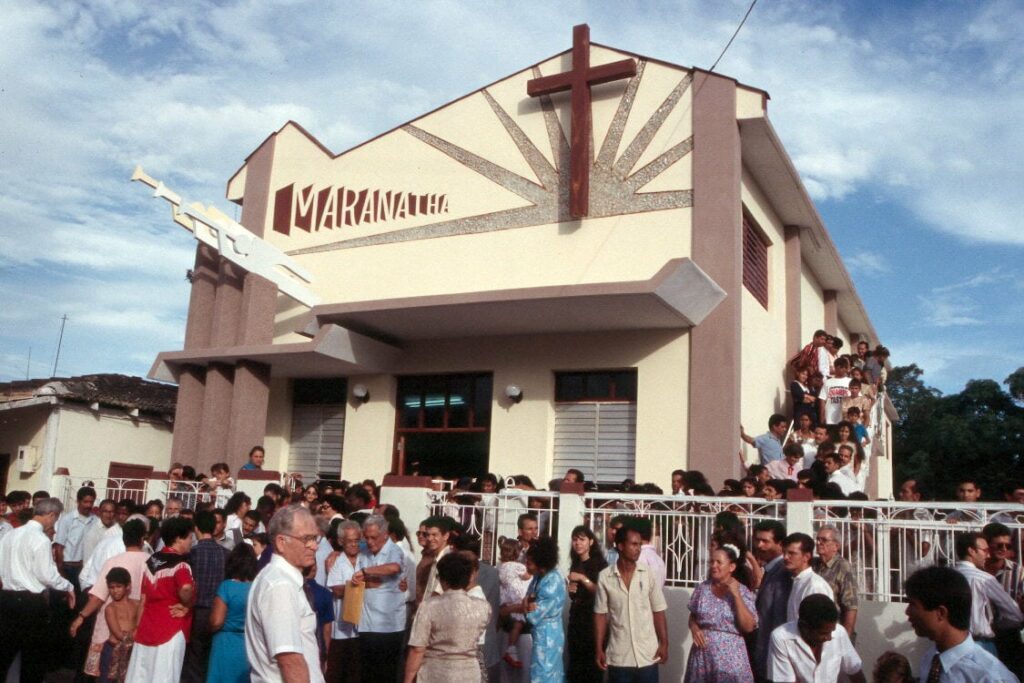
During the 1990s, Maranatha constructed or renovated more than 200 Seventh-day Adventist congregations across Cuba. [Photo: Maranatha Volunteers International]
Maranatha’s faithful and patient ministry in the country has spanned three decades.
May 17, 2o23 | California, United States | Dustin Comm, Maranatha Volunteers International
When Maranatha Volunteers International first broached the idea of working in Cuba in 1994, there were very real fears.
“We were afraid,” Maranatha president Don Noble said. “We didn’t know what we were getting into. We didn’t even know if we could go there, if we could get in, if we could accomplish anything to help the Church.”
Since then, Maranatha has held a sustained presence in the country for the past three decades, helping to increase Seventh-day Adventist membership from around 9,000 to more than 40,000. Over that time, there have been great successes, frustrations, and long periods of waiting. It’s one of the most unique, challenging, and rewarding places Maranatha has worked in over the past 54 years and 88 countries. But in the beginning, it wasn’t a given that it could be done, and it almost didn’t happen.
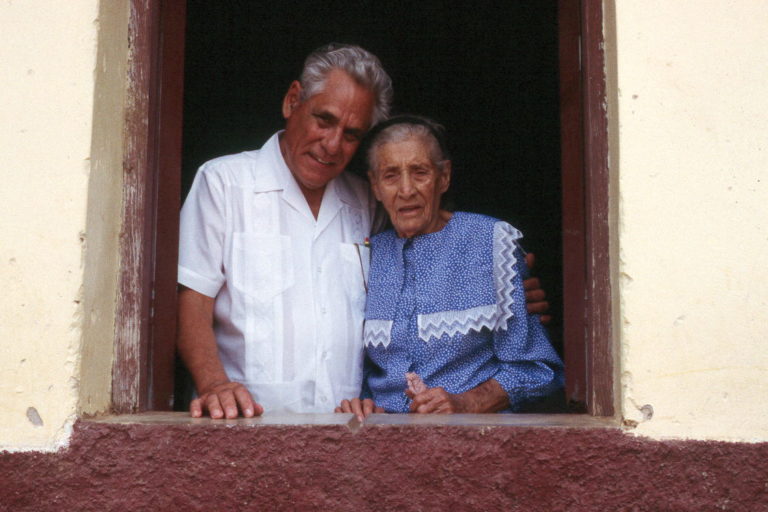
It was Cuban-American Maranatha board member Tem Suarez who raised the idea of helping his homeland. [Photo: Maranatha Volunteers International]
Noble, Suarez, and several representatives from the General Conference of the Seventh-day Adventist Church were present for a large-scale dedication for all the churches Maranatha had built in Guatemala, including Robert Folkenberg, then president of the General Conference. Garwin McNeilus, an independent businessman and missions supporter, said he wanted to build churches in Cuba. Folkenberg asked if Suarez would be willing to take the lead.
“I told them that if we can build one church in Cuba, it’ll be a miracle,” Suarez, who passed away in 2003, said. “I was scared, but l said if God wanted to do it, I would do it.”
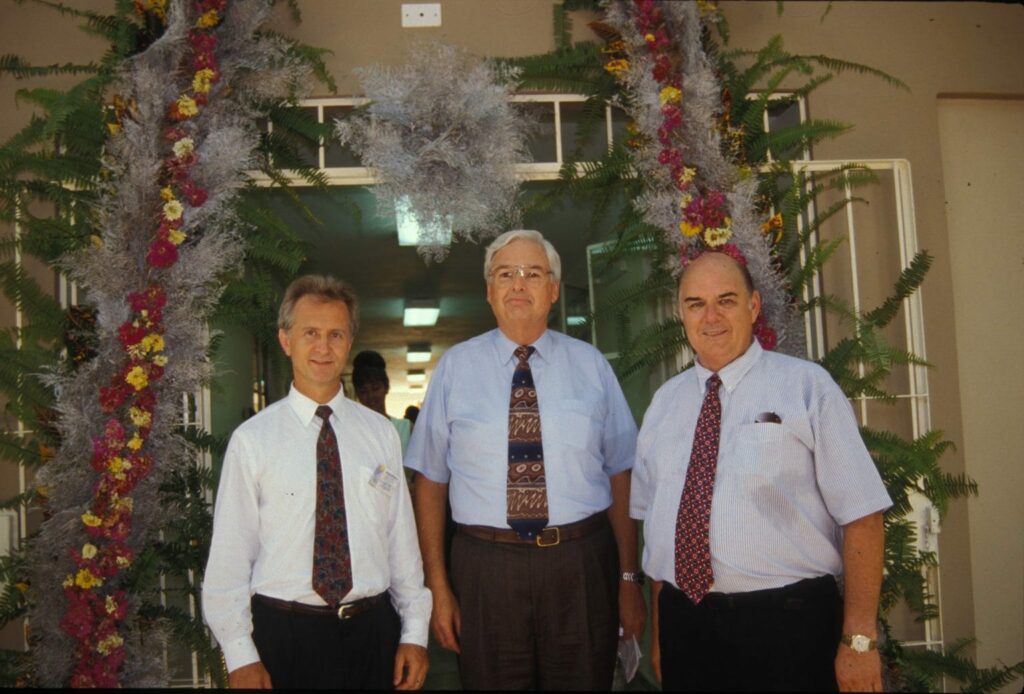
Maranatha president Don Noble (left), then General Conference president Robert Folkenberg (center), and mission supporter Garwin McNeilus (right), in 1996. [Photo: Maranatha Volunteers International]
Unlike similar efforts in other countries, Cuba required many additional steps in the construction process. Approvals and materials were often difficult to procure for churches. There were many hurdles that had to be cleared. Nevertheless, slowly and surely, Maranatha continued to push ahead and, over the remaining years of that decade, accomplished the goal for churches, and even constructed a campus for the Adventist Seminary on the island.
But after that initial period of great activity in the ’90s, permission to do new projects ceased. It became a waiting game as Maranatha patiently stayed ready to continue the work when conditions changed. It wouldn’t be until the 2010s before Maranatha would be cleared to build another church — this time for the faithful members of the Cardenas church, who had needed a new sanctuary since Maranatha’s first visit more than 20 years before. In 2017, these patient saints received a beautiful new sanctuary.
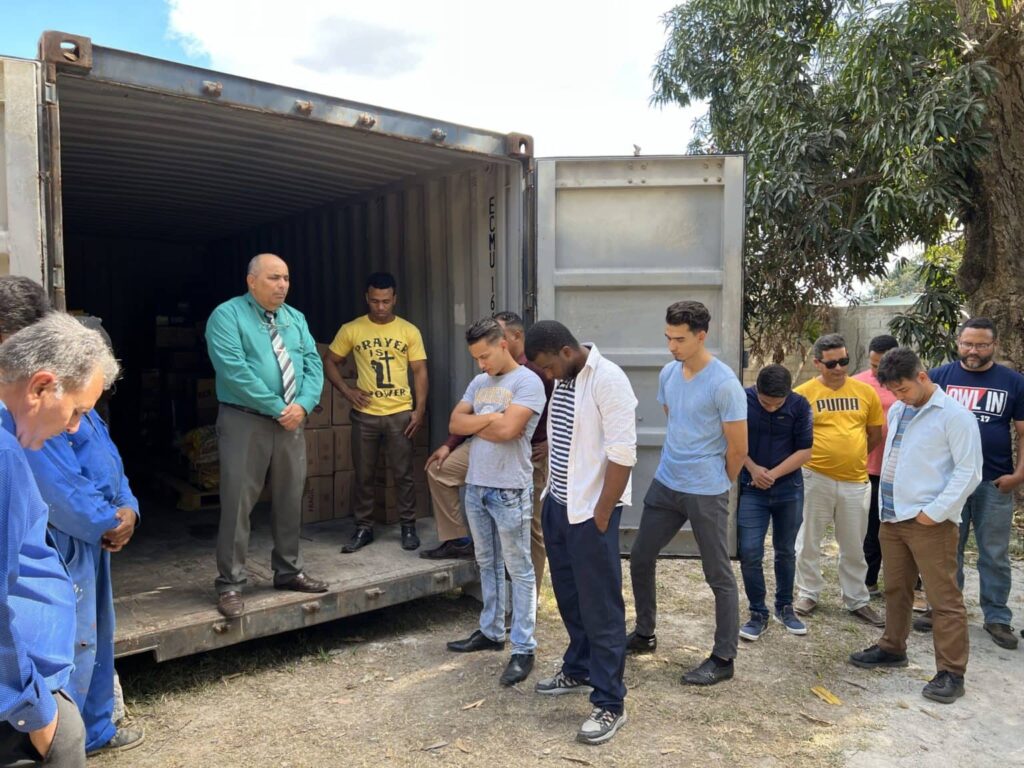
Challenging conditions in Cuba meant that Maranatha’s first shipping containers of aid were received with prayer and joy. [Photo: Maranatha Volunteers International]
He explained that there was very little food, medicine, or fuel on the island, and the people were suffering. Each citizen receives a ration book they can use to get food at distribution centers, at which there are only about six staple items: rice, beans, coffee, sugar, one-fourth cup of cooking oil each month, and salt every three months. But because of the tough economic conditions, there usually isn’t enough. It is common to see long lines of people waiting at these distribution centers, sometimes all day, for a single item. Each week they have to decide whether they will go to work and potentially miss a crucial food item at the distribution center or go to their job to earn an income. But even with that income, the supplemental food sold in open markets is often too expensive to purchase anyway, due to high inflation.
Perez appealed to Maranatha to provide help outside of the conventional construction assistance they were accustomed to. Maranatha agreed. “We decided to do something different that we typically don’t do as an organization — that’s actually helping them right at that core need,” Noble said. “Hey, they need cooking oil, they need rice, they need beans, they need aspirin. You know, just basic, basic stuff.”
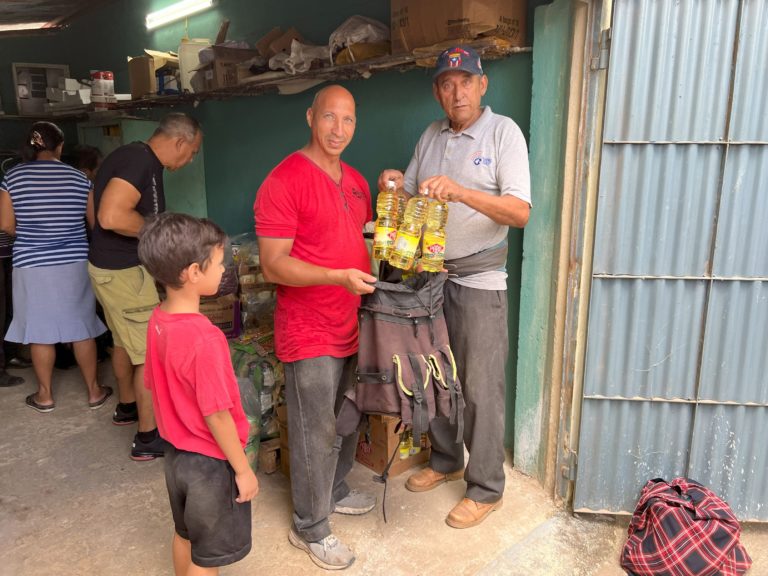
Aid has been distributed through the Adventist Union office and Seminary in the west and in the eastern city of Holguín. [Photo: Maranatha Volunteers International]
The impact was immediate. As the supplies were distributed through the Adventist Union and Seminary in the west and in the eastern city of Holguín, people came to receive the critical items with smiles and gratitude. Noble traveled to Cuba to check on the progress and was moved to see the end goal of this ambitious initiative: alleviating pain.
“It’s pretty meaningful to see the reality of the people who you were actually raising the money for, picking up the food, and you know it’s changing their life,” Noble said. “Some of them were laughing, some of them were crying. There was a mix of emotions because they didn’t know what to do with themselves. One man said, ‘You don’t understand, we can’t get any of this stuff. It doesn’t exist for us.’ They didn’t know how to respond.”
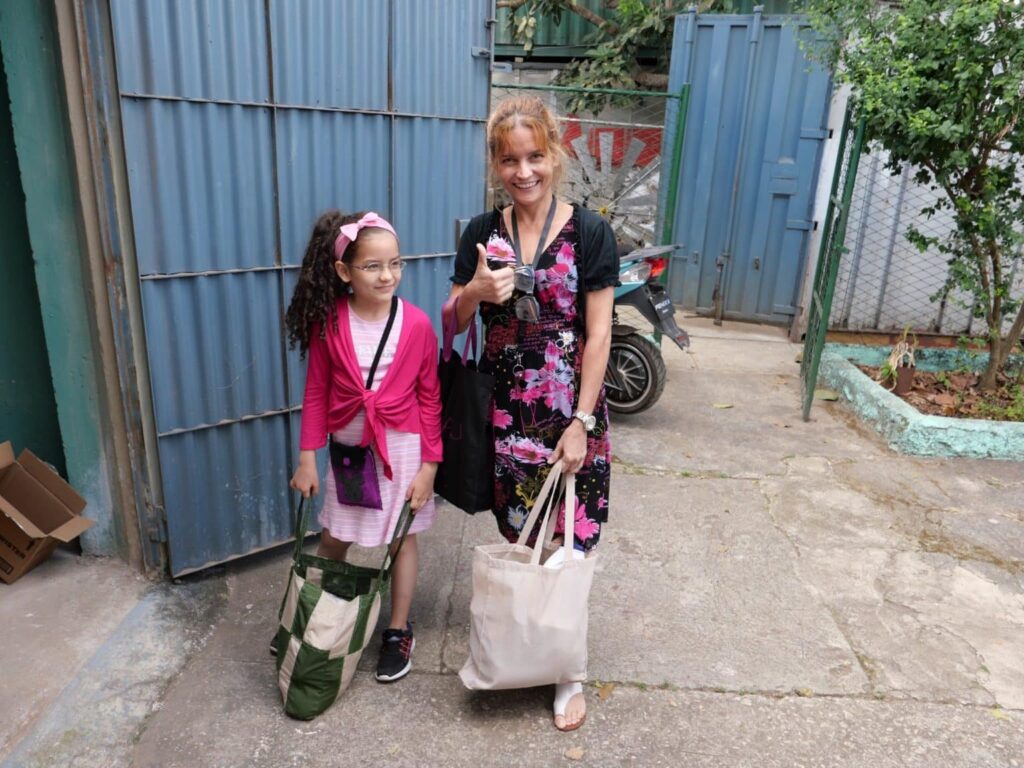
A mother and daughter leave delighted with their portion of aid. [Photo: Maranatha Volunteers International]
Currently, Maranatha is looking at half a dozen sites in need of new construction or remodeling, and permission is secured for all of them. Plans are in motion to ship materials for the first project at Nuevitas, a congregation whose old church building was condemned and torn down. The members now meet separately, scattered in different homes each Sabbath.
It’s an exciting time for Maranatha in a long history of “on again, off again” in Cuba. Nearly 30 years after that initial visit, one that was steeped in trepidation and unknowns, Maranatha is still in Cuba working to help grow the church. Suarez, who passed away 20 years ago in May, the man who dared to dream of the possibilities here, would be proud. For Noble, it’s been one big exercise in following God’s leading above all else.
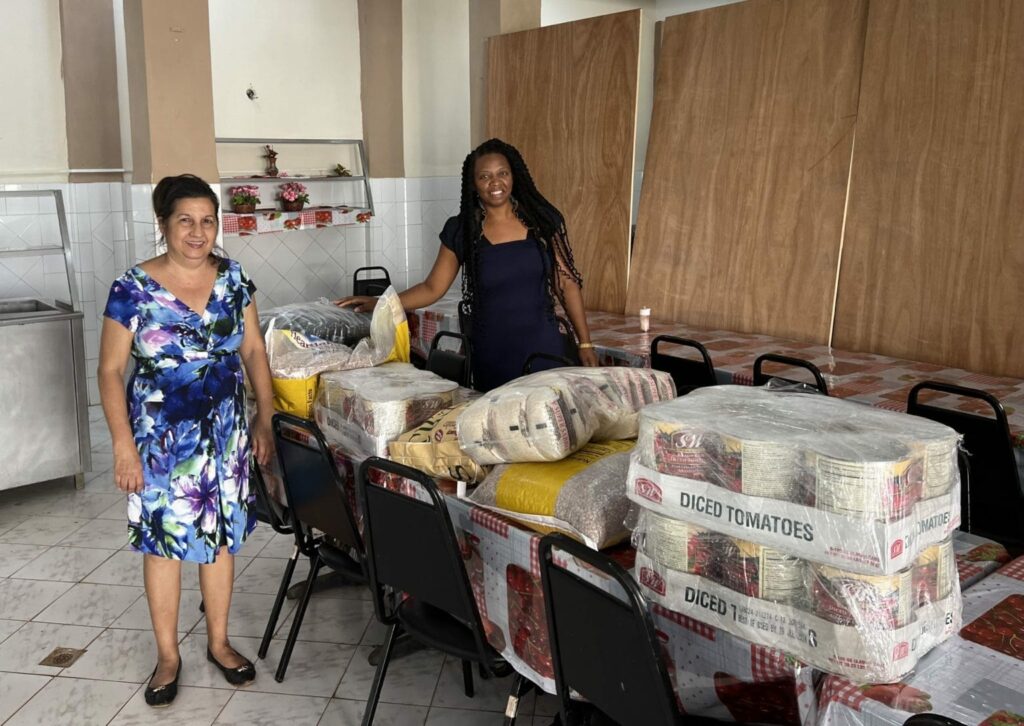
Grateful cafeteria workers receive a load of food at the Adventist Seminary. [Photo: Maranatha Volunteers International]
The original version of this story was posted on Maranatha’s Volunteer magazine.